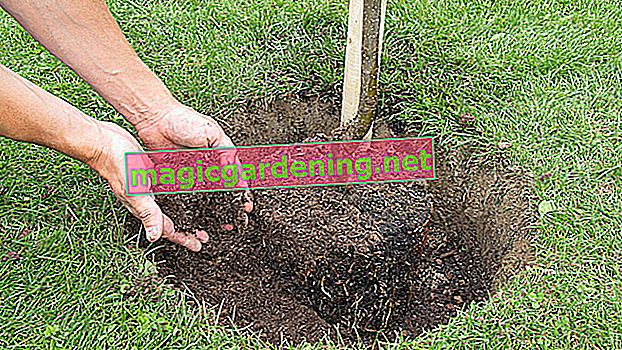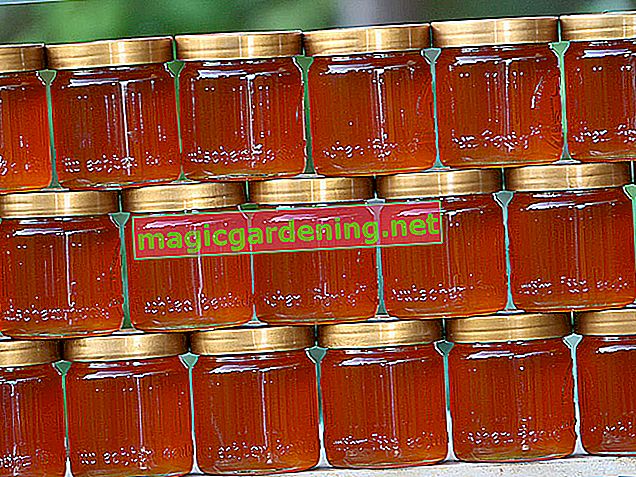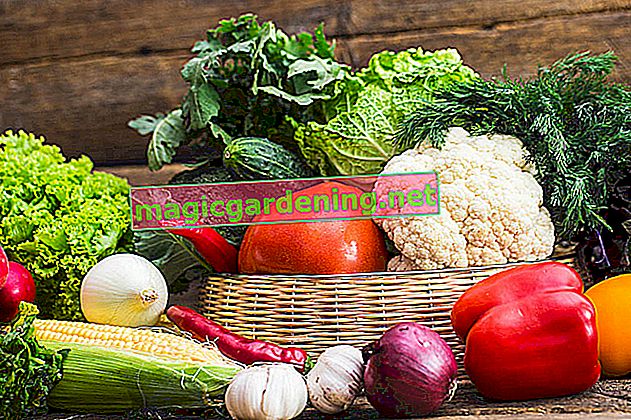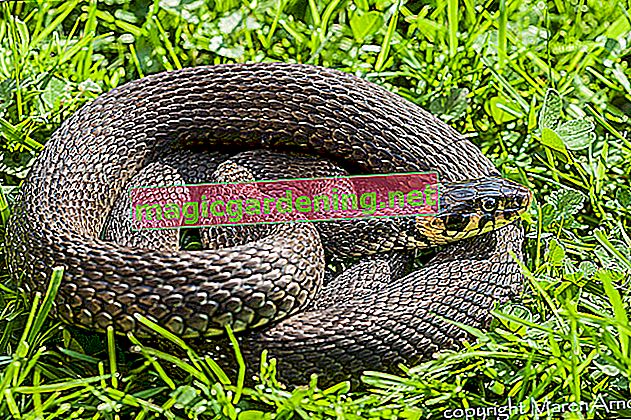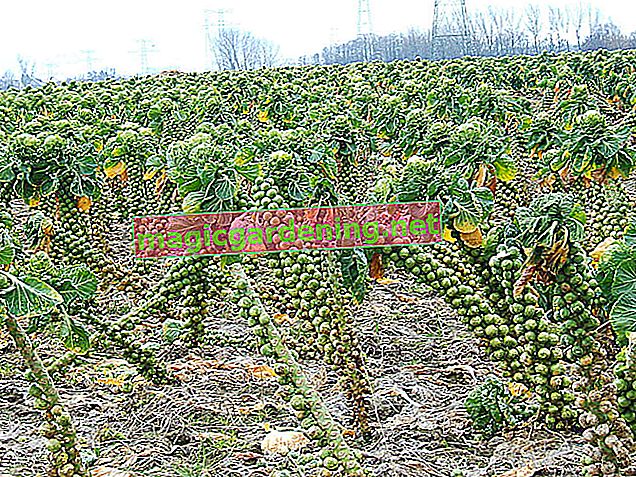
In the late year, the bed is dug at least a spade deep, and a bucket of well-rotted compost or manure is spread on every two square meters. The ground rests over the winter. In spring, the soil is then raked and another 125 grams of complete fertilizer or - in the variant for organic gardening - an equal amount of a mixture of two parts of horn shavings, one part of potash sulphate and four parts of bone meal are incorporated. The deeply fertilized, solid soil prepared in this way offers the best conditions for planting the seedlings.
also read
- Brussels sprouts - delicious winter vegetables from your own garden
- This is how you can sow Brussels sprouts
- Brussels sprouts - it's harvest time now
They are planted in the last week of May until mid-June. Make sure you have strong seedlings that are at least 10 to 15 cm tall. Plant the seedlings at a distance of about 50 to 70 cm from each other, because the Brussels sprouts need some space to develop well.
When planting, press the seedlings firmly and water them abundantly as they grow.
Since Brussels sprouts are not planted until late May, the free space in the bed can be used for planting lettuce or other intermediate crops such as French beans. If the plants have not yet had enough florets by the end of September, cut the shoot tips. This promotes the rich formation of the cabbage florets.
The first Brussels sprouts ripened in mid-October. You can harvest fresh and according to your needs by breaking off the ripe florets from the bottom up. The taste improves significantly after a light frost, so the best harvest time is in November and December. The plant does not survive severe frosts outdoors. After the first light frosts, dig up the Brussels sprouts and roots and put the plant in a cold frame or in the cellar. So you can still harvest well into March.
When planting, pay attention to the selection of the variety of Brussels sprouts. The variety “Hilds Ideal” needs one
longer development time, but is less sensitive to frost due to its large bracts. The “Wilhelmsburger” variety is only suitable for the autumn harvest because of its sensitivity to frost. When planting, just try different varieties. Brussels sprouts can be prepared in many interesting ways and offer a healthy taste experience.

